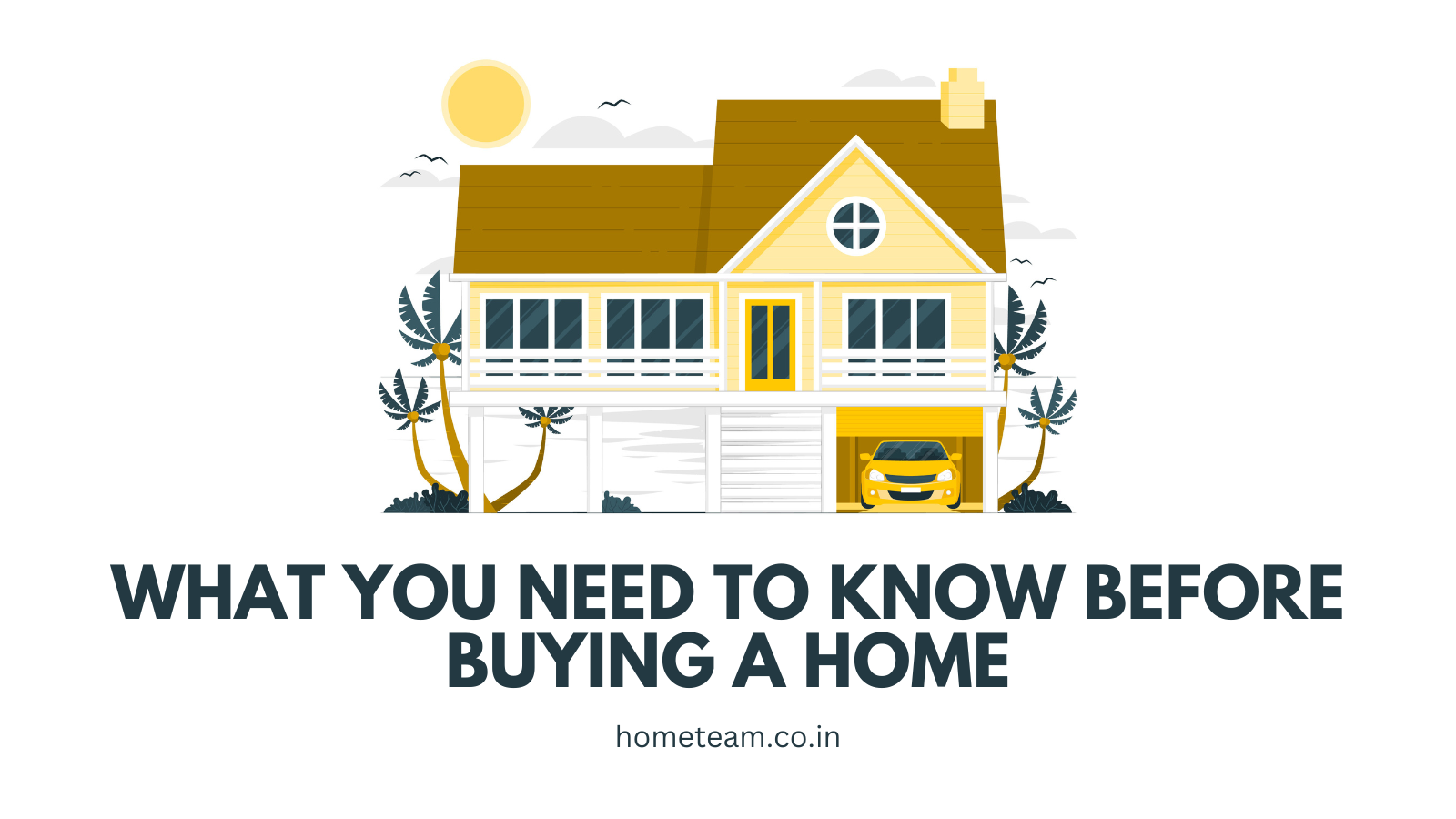What You Need to Know Before Buying A Home
Owning a home is a dream for many people. It can provide a sense of stability and security, and it can be a great investment. However, buying a home is also a major financial commitment, and it is important to be prepared before you start shopping.
There are many things to consider when buying a home, such as your budget, your needs and wants, and the current housing market. It is also important to understand the buying process and to be prepared for the financial costs involved.
In this guide, we will cover everything you need to know before buying a home in 2023. We will discuss your finances, your needs and wants, the home buying process, and the financial costs involved.
Your finances
One of the most important things to consider when buying a home is your finances. You will need to have a down payment saved up, and you will also need to qualify for a mortgage.
The down payment is the amount of money that you will pay upfront for the home. The minimum down payment requirement for a conventional mortgage is 3%, but many lenders require a higher down payment, such as 20%.
To qualify for a mortgage, you will need to have a good credit score and a low debt-to-income ratio. The credit score requirement will vary depending on the lender, but most lenders require a credit score of at least 620. Your debt-to-income ratio is the amount of money that you owe each month compared to your income. The maximum debt-to-income ratio for a conventional mortgage is 43%, but many lenders require a lower debt-to-income ratio.
Your needs and wants
Once you have your finances in order, it is time to start thinking about your needs and wants in a home. Make a list of the things that are most important to you, such as the number of bedrooms and bathrooms, the type of property you're looking for (e.g., house, condo, townhouse), and the location. You should also consider your budget and how long you plan to stay in the home.
It is important to be realistic about your needs and wants. You may not be able to afford to buy your dream home right away, but you can still find a home that meets your basic needs and that you can grow into over time.
The home buying process
The home buying process typically begins with finding a real estate agent. A good real estate agent can help you find the right home for your needs and budget. They can also guide you through the buying process and negotiate on your behalf.
Once you have found a real estate agent, you can start shopping for homes. Be prepared to visit several homes and compare prices before you make an offer. You should also ask your real estate agent about the history of the home and any potential problems.
When you find a home that you like, you will need to make an offer. Your real estate agent can help you write a competitive offer and negotiate with the seller. Once your offer is accepted, you will need to go through the inspection and closing process.
The inspection process
The inspection process is an important part of the home buying process. A home inspector will inspect the home for any potential problems. If the inspector finds any problems, you can negotiate with the seller to have them fixed before you close on the home.
The closing process
The closing process is the final step in the home buying process. This is when you will sign the paperwork and officially become the owner of the home.
Financial costs
In addition to the down payment, there are other financial costs associated with buying a home. These costs include closing costs, property taxes, and home insurance.
Closing costs are the fees associated with buying a home, such as title insurance, appraisal fees, and loan origination fees. Closing costs can vary depending on the location and price of the home, but they typically range from 2% to 5% of the purchase price.
Property taxes are annual taxes that are paid to the local government. Property taxes are based on the value of the home.
Home insurance is insurance that protects your home from damage or loss. Home insurance is not required by law, but it is a good idea to have it.
Buying a home is a major life decision and it is important to be well-informed before you start shopping. There are many things to consider, such as your budget, your needs and wants, and the current housing market. It is also important to understand the buying process and to be prepared for the financial costs involved.
If you are looking to buy a home in Noida, India, then HomeTeam Real Estate is the company for you. We have a team of experienced and knowledgeable real estate agents who can help you find the perfect home for your needs and budget. We also offer a variety of services to make the home buying process as easy and stress-free as possible.
Contact us today to learn more about our services and to start your home buying journey!
FAQs
Before buying a home, consider your budget, location, size, and features. Assess your long-term needs, inspect the property, and research the neighborhood's safety and amenities. Don't forget to factor in maintenance costs and potential future resale value.
A pre-approval letter from a lender is crucial. It shows how much you can borrow, helps you set a realistic budget, and strengthens your offer's credibility with sellers. Without it, you may risk losing out on your dream home to a more prepared buyer.
To select the right real estate agent, interview several candidates, and consider their experience, local knowledge, and communication skills. Ensure they understand your needs and preferences. A good agent can simplify the buying process and help you find the best home.
A home inspection is essential to identify potential issues with the property. It can uncover hidden problems, provide negotiation leverage, and save you from unexpected costs after purchase. Hire a reputable inspector to assess the property thoroughly before finalizing the deal.
Estimate your closing costs by considering fees like the appraisal, inspection, title search, and lender fees. Additionally, account for property taxes, insurance, and a down payment. These costs vary, but a general rule of thumb is to budget 2-5% of the home's purchase price.










